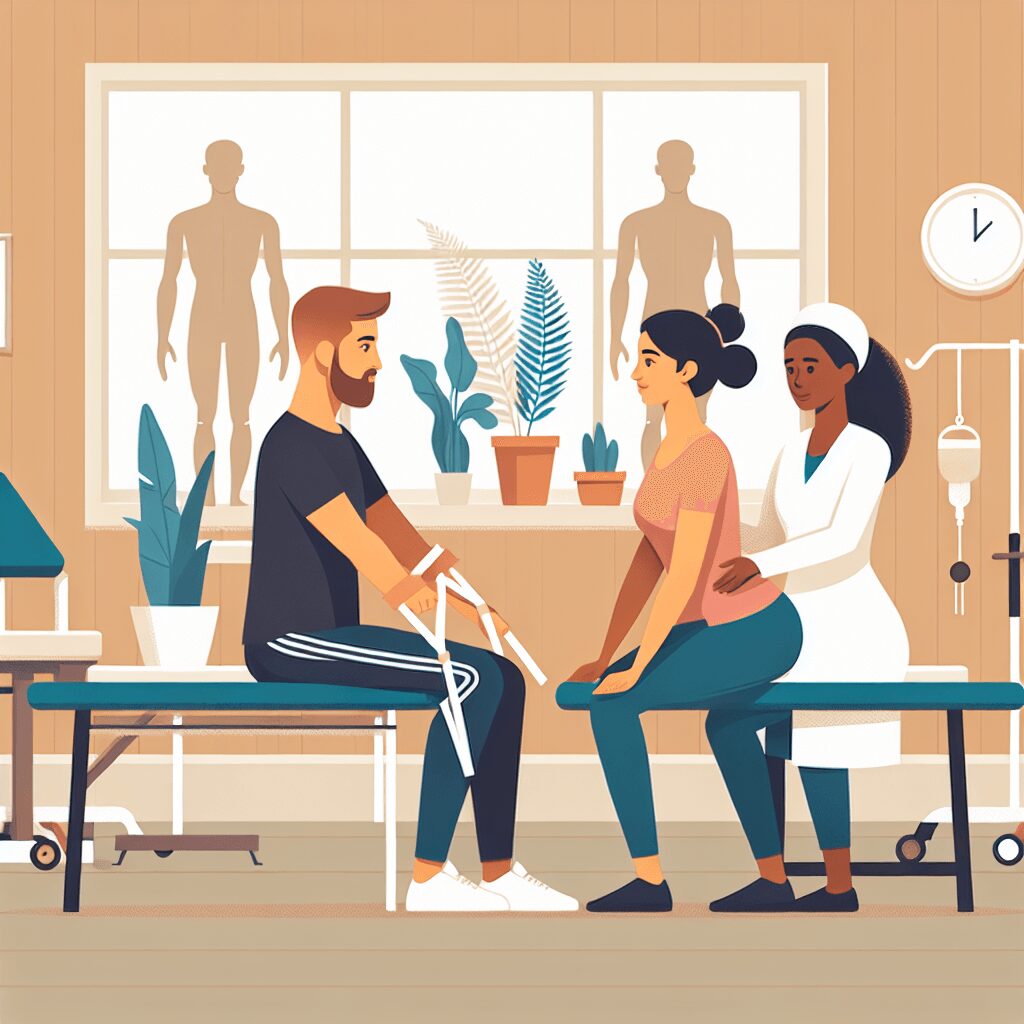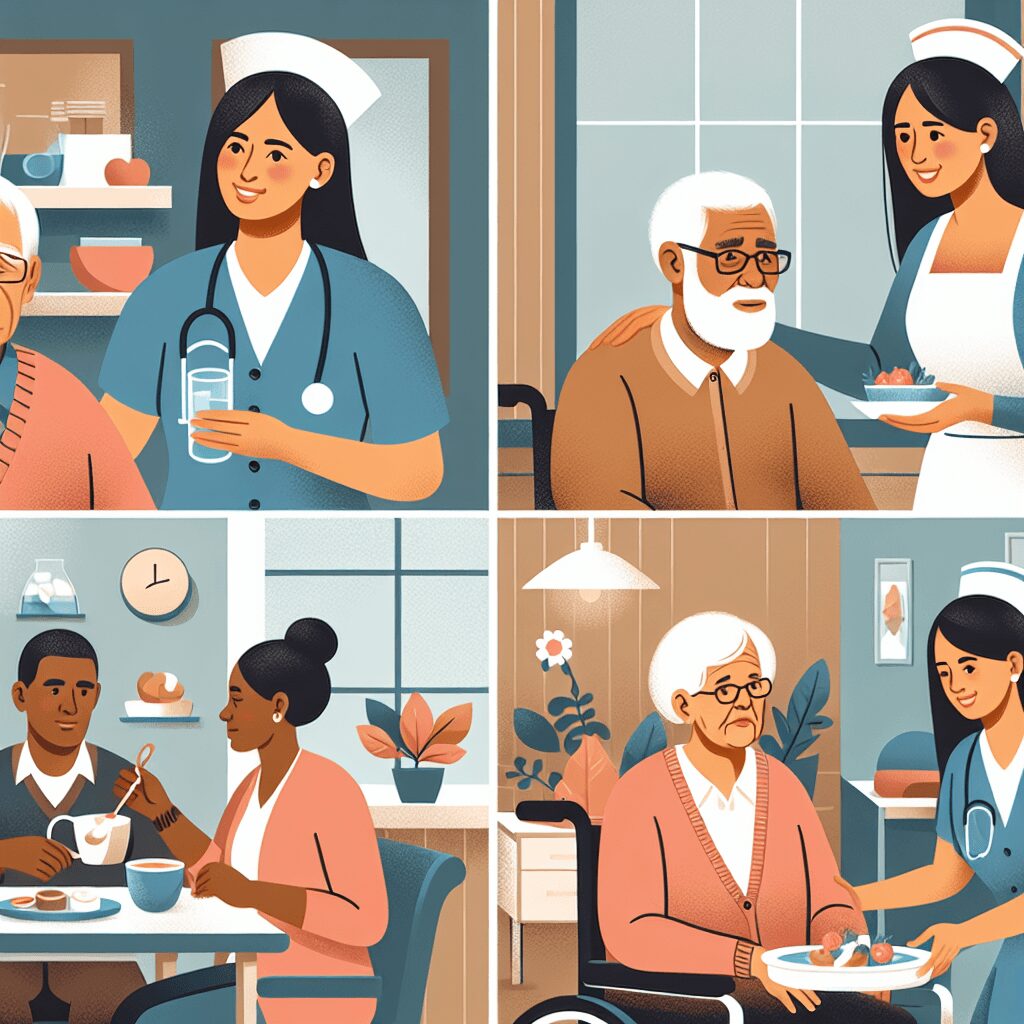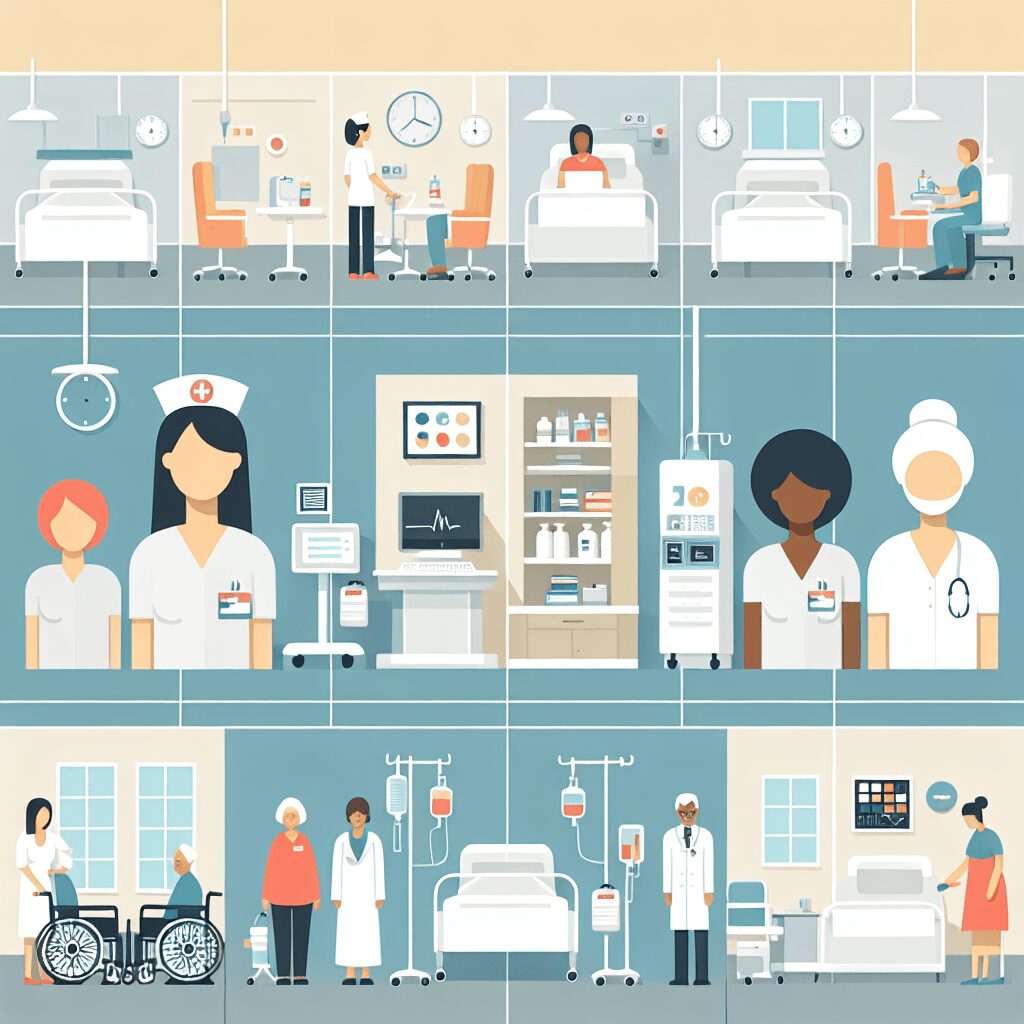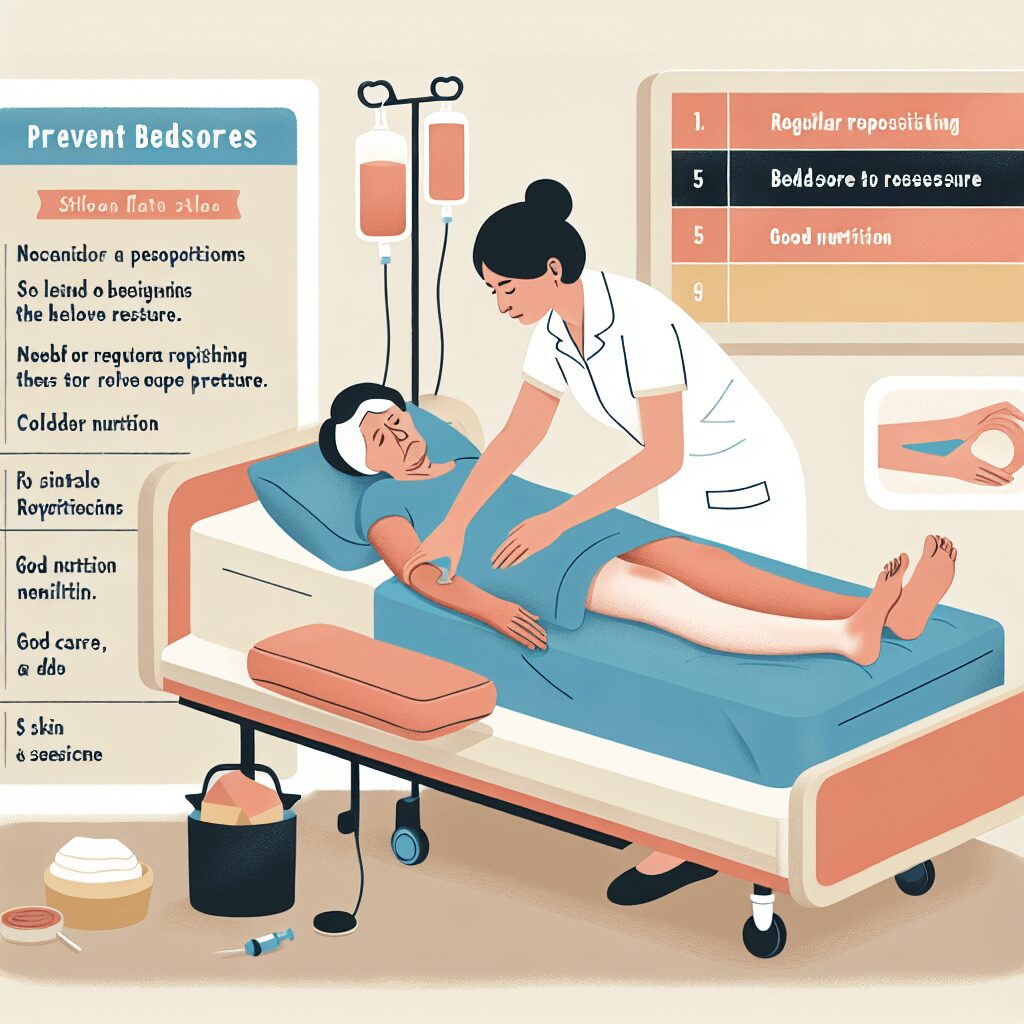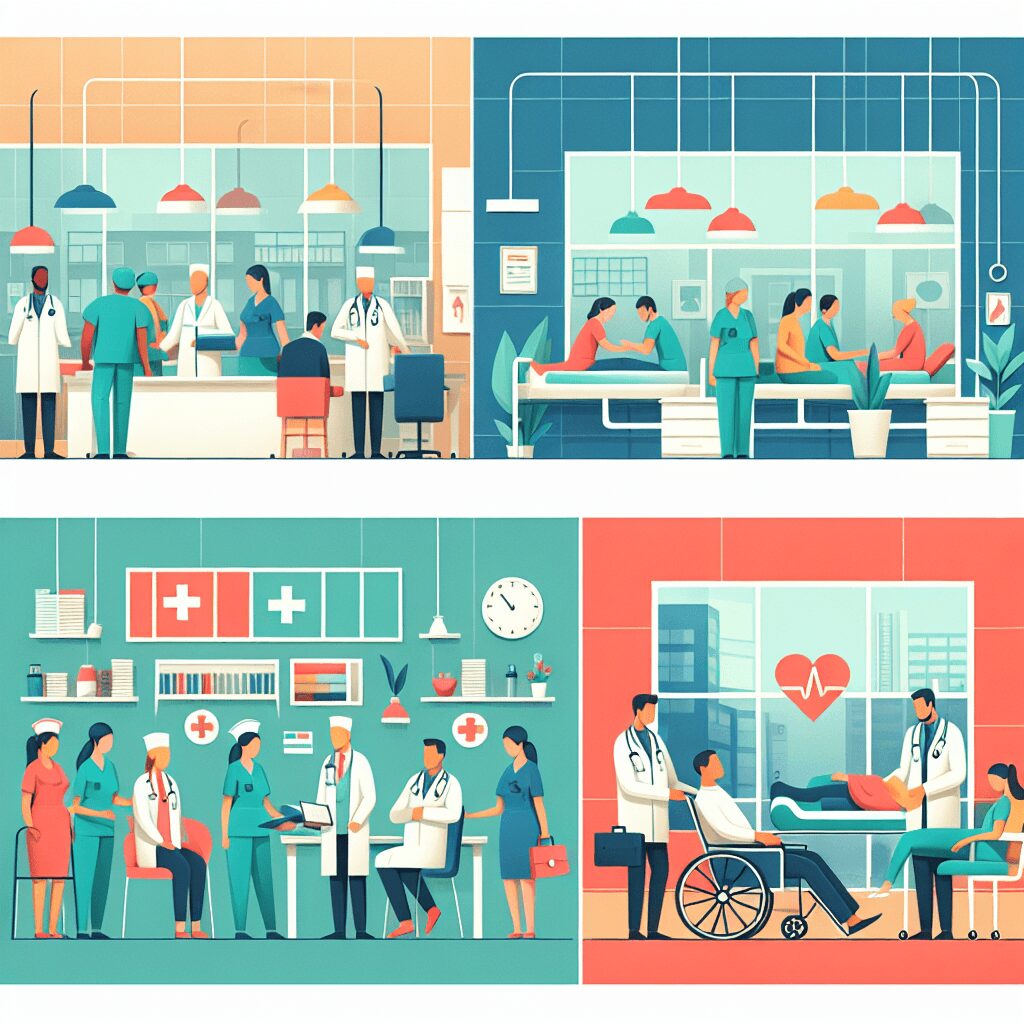Entering a rehabilitation facility can be an important step in the journey to recovery for individuals dealing with mental health or substance use disorders.
What happens in a rehab center? Therapy sessions and personalized treatment plans are just some of the things offered. These facilities provide a structured environment to help individuals regain independence and well-being.
Let’s look at the care and support provided in rehab centers. This assists in the healing process and helps individuals on their path to recovery.
What is Rehabilitation?
Program Services
Program services for rehabilitation include:
– Gait evaluation
– Family conferences
– Psychological evaluation
– Wheelchair positioning
– Recreational activities
Inpatient rehabilitation facilities offer:
– Intensive therapy programs
– Coordinated care from doctors and therapists
– Medical supervision for skilled care during recovery
After completing a program, individuals can get support from:
– Support groups
– Treatment facilities in a nationwide directory
These services help with:
– Substance abuse treatment
– Group counseling
– Addressing spiritual and mental health concerns
Facilities offer:
– Individualized treatment plans
– Compassionate support
– Focus on lasting recovery
They promote:
– Strong work habits
– Assistance with withdrawal symptoms
– Overcoming addiction challenges
Through coordinated care from medical professionals and therapists.
Substance Addiction Treatment Information
Substance addiction treatment programs offer various services. These include inpatient rehabilitation, group counseling, and coordinated care from doctors and therapists.
Treatment facilities provide personalized treatment plans. These plans aim for long-term recovery.
To find reliable information on substance addiction treatment, individuals can explore treatment options in a nationwide directory. They can find addiction treatment facilities and drug rehab centers.
After completing a program, individuals should continue their recovery journey by engaging in recreational activities, attending group counseling sessions, and seeking spiritual guidance.
Medicare Part A can help cover the costs of inpatient rehabilitation facilities. This option is available for individuals with substance abuse issues. In these facilities, individuals can receive intensive rehabilitation therapy for long-lasting recovery.
Inpatient Rehabilitation Facilities
Medically Reviewed Care
Medically reviewed care is important for individuals in inpatient rehabilitation facilities. This care is especially crucial for those dealing with health conditions like substance abuse and mental health issues.
Determining if care is medically reviewed involves doctors’ certification, coordinated care from therapists, and following specific treatment protocols.
To ensure individuals receive this care level, choosing reputable facilities is important. These facilities provide comprehensive and personalized treatment plans.
Seeking treatment options from a nationwide directory of addiction treatment facilities and drug rehab centers can help individuals access services that prioritize their well-being and recovery.
Through the admissions process at these facilities, individuals can take a courageous step toward lasting recovery. They receive compassionate support and have access to intensive rehabilitation programs tailored to their unique needs.
Recovery Process
The recovery process involves several important steps:
– Substance abuse treatment
– Inpatient rehabilitation
– Coordinated care from doctors and therapists
Trust is vital during this process. Individuals trust professionals to help with withdrawal symptoms and mental health issues.
After rehab, individuals can continue their recovery journey with:
– Group counseling
– Recreational activities
– Spiritual support
Work habits developed in work therapy programs and personalized treatment plans are crucial for lasting recovery.
Support from addiction treatment facilities and resources helps individuals sustain their progress.
By following their treatment plans and seeking support, individuals can achieve lasting recovery in a safe and caring environment.
Understanding Alcohol Rehab
Specialized Facilities
Specialized facilities like inpatient rehabilitation centers offer intensive programs for people seeking substance abuse treatment.
These centers provide coordinated care from doctors, therapists, and other healthcare providers to address withdrawal symptoms and promote recovery.
Group counseling and recreational activities are part of the treatment plans to support mental health and address spiritual issues.
Work therapy helps individuals develop strong work habits, creating a sense of purpose and structure during recovery.
These facilities offer personalized treatment plans and referral services to meet each person’s unique needs for long-term recovery.
A nationwide directory of addiction treatment facilities and a compassionate admissions process provide individuals with various treatment options and support for their recovery journey.
Medicare Part A coverage ensures accessibility to these important services for individuals seeking substance abuse treatment.
Rehabilitation Costs
Rehabilitation costs in facilities depend on factors like Medicare coverage, deductibles, and benefit periods. Medicare Part A covers services like physical therapy, nursing, prescription drugs, and meals. Costs vary based on the day of care, ranging from $1,632 to $816 per day. Different programs, like those from various organizations, impact costs based on treatment intensity and duration for substance abuse or mental health.
Financial assistance like sliding fee scales and state-funded programs can help reduce the burden. Coordinated care from doctors, therapists, and healthcare providers ensures a comprehensive approach to treatment for substance abuse and mental health challenges.
The Next Steps After Rehabilitation
Trust in the Recovery Process
Building trust in the recovery process is important for individuals seeking sobriety, especially in substance abuse treatment. Inpatient rehabilitation centers offer coordinated care from doctors, therapists, and a medical director.
These programs provide intensive care to address withdrawal symptoms, mental health issues, group counseling, and recreational activities. Trust is crucial for lasting recovery, achieved through referrals and personalized treatment plans. Healthcare providers contribute by dispelling discrimination and addressing spiritual concerns, promoting good work habits, and supporting work therapy.
Accessing nationwide directories of addiction treatment facilities and substance use agencies helps individuals find appropriate care with compassionate admissions teams. Trust in the recovery process is vital for success in addiction treatment programs and maintaining long-term sobriety.
Benefits of In-Home Healthcare Services
Personalized and Flexible Care
In-home healthcare services offer a personalized and flexible approach to patient care, which can be more comforting and convenient than inpatient rehabilitation facilities. Patients receive one-on-one attention from healthcare professionals in their homes, allowing them to maintain their routines and stay in familiar surroundings. This setting significantly enhances the emotional and psychological well-being of patients, particularly those recovering from substance abuse or mental health issues. Family members can be more involved in the care process, providing additional support and companionship, which can be critical to overall health and well-being.
Reduced Costs and Improved Comfort
In-home healthcare services can also be more cost-effective compared to inpatient rehabilitation facilities. Reducing healthcare costs can be reduced by eliminating the need for hospital stays and allowing patients to receive care in their own homes. Furthermore, the convenience of not needing to travel to a care facility helps reduce stress and improve patient comfort, which can lead to better health outcomes. In-home healthcare services provide the flexibility to tailor the care plan to the individual’s specific needs, ensuring they receive the appropriate level of support throughout their recovery journey.
FAQ
What types of services are offered in a rehab facility?
Services typically offered in a rehab facility include individual therapy, group therapy, medication management, detoxification, and family therapy. Additional services may include holistic therapies, recreational activities, and aftercare planning.
How long does a typical rehabilitation program last?
The length of a typical rehabilitation program can vary depending on the individual’s needs and progress, but it commonly lasts anywhere from 30 to 90 days. However, some programs can be shorter or longer based on specific circumstances.
What is the role of a medical team in a rehab facility?
The role of a medical team in a rehab facility is to assess patients’ medical needs, provide treatment, and monitor their progress. They may include doctors, nurses, physical therapists, and psychologists.
How are treatment plans tailored to meet individual needs?
Treatment plans are tailored by considering the specific symptoms, preferences, and goals of each individual. This may involve adjusting medication dosages, incorporating therapy techniques that resonate with the patient, and emphasizing certain lifestyle changes based on their needs.
Are family members involved in the rehabilitation process?
Yes, family members are often involved in the rehabilitation process through family therapy sessions, education on how to support individual recovery, and participating in treatment planning meetings.
Explore the comprehensive care offered in rehabilitation facilities and discover how ABET Life Home Health & Caregiving brings these services to the comfort of your home. Our in-home rehab services provide personalized therapy and support, helping you recover efficiently and comfortably. Contact us today to learn more about our tailored rehabilitation programs and how we can assist you in your recovery journey.

